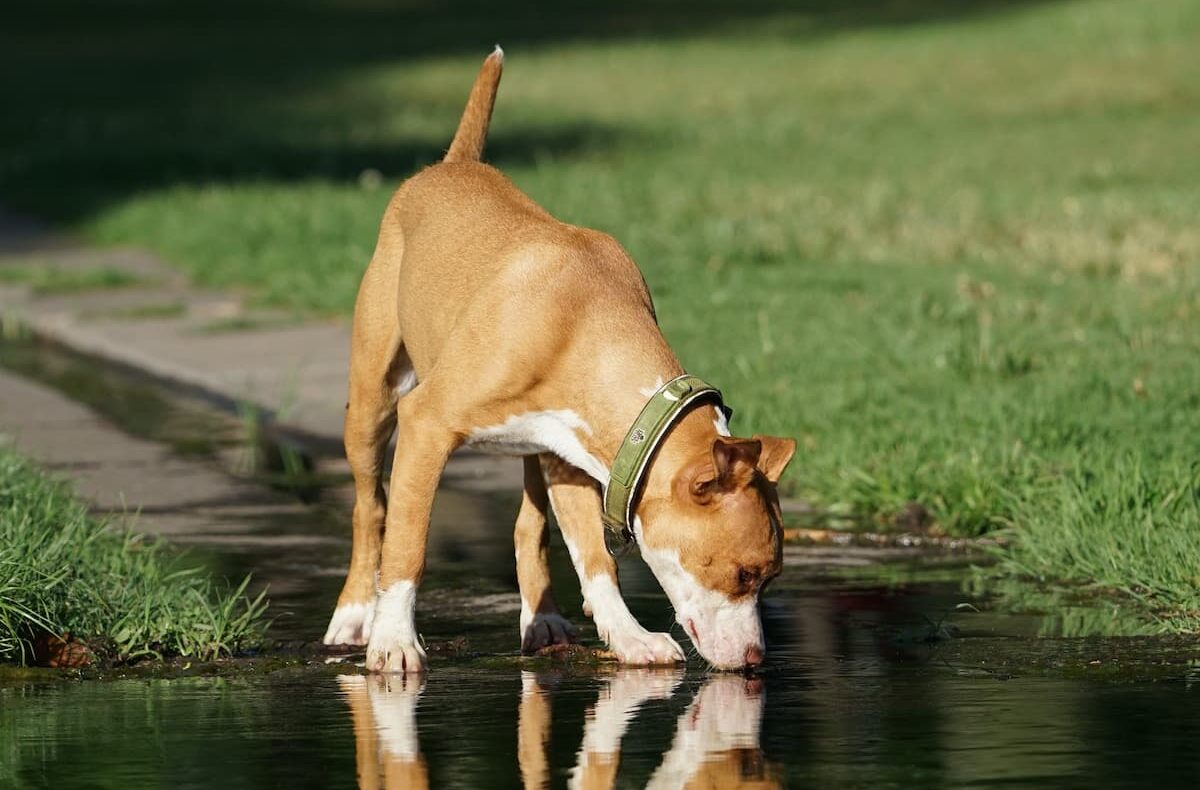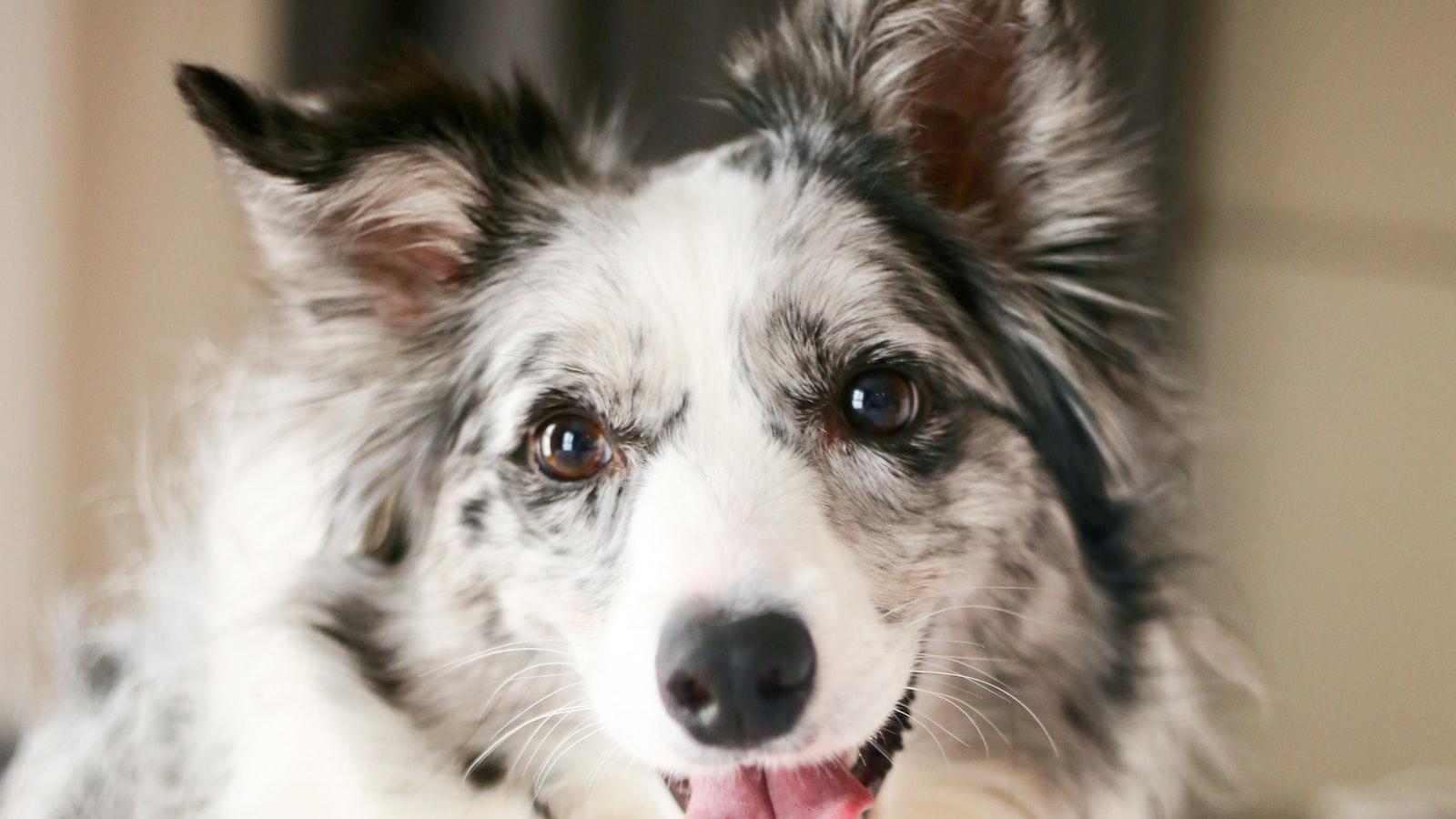Have you ever woken up in the morning, stretched out on your cozy bed, only to find your furry friend groaning beside you, uncomfortably hurling up a bright yellow blob?
Ah, the joys of being a dog owner!
As much as we adore our four-legged companions, it’s no secret that their antics often leave us puzzled and, at times, even a tad grossed out.
This article will explain why dogs keep sicking up yellow bile.
Causes Behind Yellow Bile Vomiting in Dogs
Have you ever woken up to find your furry friend vomiting yellow bile?
It can be alarming, but rest assured, you’re not alone.
Many dog owners have witnessed this unpleasant sight, but what exactly causes dogs to sick up yellow bile?
Here are some potential culprits
1. Empty Stomach: One of the main reasons behind yellow bile vomiting in dogs is fasting or skipping meals.
When your dog’s stomach is empty for an extended period, excess bile can build up, irritating the stomach lining and triggering the vomiting reflex.
So, make sure your pup is on a regular feeding schedule to avoid this gastric disturbance.
2. Bile Reflux: Similar to humans, dogs can also experience bile reflux, where the digestive juices flow back from the small intestine to the stomach, leading to irritation.
If your pooch has a weakened esophageal sphincter or suffers from gastrointestinal issues, it can disrupt the natural flow of bile, causing it to accumulate and eventually be vomited.
3. Dietary Issues: Another common cause of yellow bile vomiting is related to the diet.
Feeding your dog a low-quality or fatty meal can disrupt their digestive system, leading to an upset stomach and bile regurgitation.
Additionally, certain food intolerances or allergies can also trigger this uncomfortable reaction, so it’s important to monitor your dog’s diet and avoid any potential triggers.
Healthy Tips to Prevent Yellow Bile Vomiting
Now that we’ve shed some light on the possible culprits behind yellow bile vomiting in dogs, it’s essential to consult your veterinarian if this becomes a recurrent issue for your furry companion.
They can provide a proper diagnosis and recommend tailored solutions to alleviate their discomfort.
Luckily, there are several simple tips you can follow to nurture your pup’s digestive health and reduce the chances of yellow bile vomiting:
1. Stick to a Regular Feeding Schedule: Dogs thrive on routine, and maintaining a consistent feeding schedule is important for their digestive system.
Try to feed your pup at the same time each day to help regulate their metabolism and prevent bile buildup.
Additionally, avoid leaving food out all day as it can lead to irregular eating habits, making your pooch more prone to vomiting yellow bile.
2. Provide Smaller, Frequent Meals: Instead of serving your pup one or two large meals, consider dividing their daily food portion into smaller, more frequent meals.
This can help prevent long periods of fasting and maintain a more stable blood sugar level, ultimately reducing the chances of bile vomiting.
Offering smaller meals also makes it easier for your dog’s stomach to digest the food, minimizing the strain on their digestive system.
3. Incorporate Digestive Health Supplements: Certain supplements can be beneficial in maintaining your pup’s digestive health.
Probiotics, for example, can promote a healthy gut flora and aid in better digestion.
Additionally, digestive enzymes can help break down food more efficiently, reducing the risk of bile buildup.
Consult your veterinarian to determine the right supplements and dosages for your furry friend.
4. Provide a Healthy, Well-Balanced Diet: A high-quality, balanced diet that suits your dog’s specific nutritional needs is crucial.
Opt for dog food that contains easily digestible proteins, fiber-rich ingredients, and healthy fats.
This will promote a healthy digestive system and reduce the chances of bile vomit.
Additionally, consider incorporating probiotics into their diet.
These beneficial bacteria can assist in maintaining a healthy gut flora and prevent any gastrointestinal issues.
By following these simple yet effective tips, you can nurture your pup’s digestive health and lower the chances of them experiencing yellow bile vomiting.
Remember, a healthy digestive system leads to a happy and vibrant pup!
Signs that Your Dog’s Vomiting Needs Attention
Vomiting yellow bile is actually quite common in dogs and usually not a cause for immediate alarm.
However, there are certain signs that indicate your furry friend may need veterinary assistance.
Signs that Your Dog’s Vomiting Needs Attention:
Frequent vomiting: If your dog is consistently vomiting yellow bile more than once or twice a day, it’s time to seek veterinary assistance.
Frequent vomiting can be a sign of an underlying health issue that needs to be addressed.
Lethargy and loss of appetite: If your dog is also displaying signs of lethargy and loss of appetite along with the vomiting, this may indicate a more serious problem.
It’s important to consult with your veterinarian to rule out any potential causes.
Blood in vomit: Finding blood in your dog’s vomit is always a cause for concern.
It could be a sign of gastrointestinal bleeding or another serious condition.
Don’t hesitate to reach out to your vet for immediate attention.
Remember, every dog is different, and there can be various reasons for vomiting yellow bile.
While occasional episodes may not be cause for alarm, it’s important to be vigilant and watch for any additional symptoms that may indicate the need for veterinary assistance.
Your furry friend’s health should always be a top priority!
FAQ
Q: Why do dogs throw up yellow bile?
A: Well, when dogs vomit yellow bile, it could be a sign of various factors at play.
The most common reason is that their tummies are empty for an extended period.
Q: Empty stomach? What does that have to do with it?
A: Good question!
When a dog’s stomach is empty, bile—that’s a yellow-green fluid produced by the liver—can accumulate.
Without any food to digest, this bile may irritate the stomach lining, leading to vomiting.
Q: Is this a cause for concern?
A: Generally, occasional vomiting of yellow bile isn’t immediately alarming.
However, if it becomes a frequent occurrence, it’s advisable to consult a veterinarian.
They can help identify any underlying issues and provide guidance.
Q: How can I prevent or alleviate this problem?
A: To prevent bouts of yellow bile vomit, you can try a few simple solutions!
One effective option is to provide smaller but more frequent meals for your pup.
This way, their stomach won’t remain empty for long periods, reducing the chance of bile buildup.
Q: Are there any other ways to tackle this issue?
A: Absolutely!
Another handy trick is to leave a small, healthy snack available for your furry pal overnight.
This can help keep their digestive system busy and reduce the chances of waking up to a yellow bile surprise in the morning.
Q: Besides an empty stomach, are there other causes for yellow bile vomit?
A: Indeed, there could be other factors to consider.
For example, some dogs may experience gastrointestinal problems such as acid reflux or chronic gastritis.
These conditions might lead to more frequent cases of yellow bile vomiting.
Q: How can I distinguish between occasional vomiting and a more severe problem?
A: Great question!
If your dog’s vomiting persists, includes blood, is accompanied by lethargy, loss of appetite, or any other concerning symptoms, it’s essential to seek professional veterinary advice promptly.
They will be able to evaluate the situation and provide appropriate care.
Q: I see.
So, apart from monitoring their diet and habits, regular check-ups with a vet are crucial, right?
A: You’ve hit the nail on the head!
It’s vital to maintain a routine of regular check-ups with your dog’s veterinarian.
This helps ensure any potential health issues are detected early and appropriate actions are taken to keep your beloved companion in top shape.
Q: Anything else we should keep in mind?
A: Well, the health of our furry friends is always a priority.
Understanding the reasons behind yellow bile vomiting allows us to take necessary measures.
Remember, a happy and healthy dog is a joy to be around, so let’s keep an eye on their well-being!
Wrapping Up
Dogs vomiting yellow bile, is not something to panic about, but understanding the reasons can certainly put your mind at ease.
Remember, if you notice this happening to your furry friend, it’s essential to assess their overall health and consult your veterinarian if needed.
As we learnt, a dog’s empty stomach can trigger the production of yellow bile, especially after hours of fasting.
But don’t fret!
Simply adjusting their feeding routine, like dividing meals into smaller portions throughout the day, might do the trick.
It’s like ensuring they have a steady supply of delicious fuel to keep that tummy from getting too queasy.
Additionally, we learned that anxiety and stress can also cause our canine companions to expel bile.
Just like humans, dogs can experience emotional turmoil, and their stomachs often react accordingly.
Whether it’s a change in routine, a new arrival in the family, or even a thunderstorm brewing outside, it’s important to recognize and address any sources of stress in your pup’s life.
A calm, supportive environment can work wonders for their overall well-being.
And lastly, we can’t forget about those sneaky little gallstones that can occasionally disrupt our four-legged friends.
Should your dog have a history of gallbladder issues, it’s best to consult with your veterinarian, who will provide expert guidance and potentially suggest a specialized diet or medication to alleviate their discomfort.
So, if you notice your pooch coughing up yellow bile, take a moment to assess their situation.
With a little bit of love, attention, and the right care, we can help our furry companions live their happiest, healthiest lives.
And who knows, maybe one day they’ll even thank us for being their ultimate bile-busting heroes!












